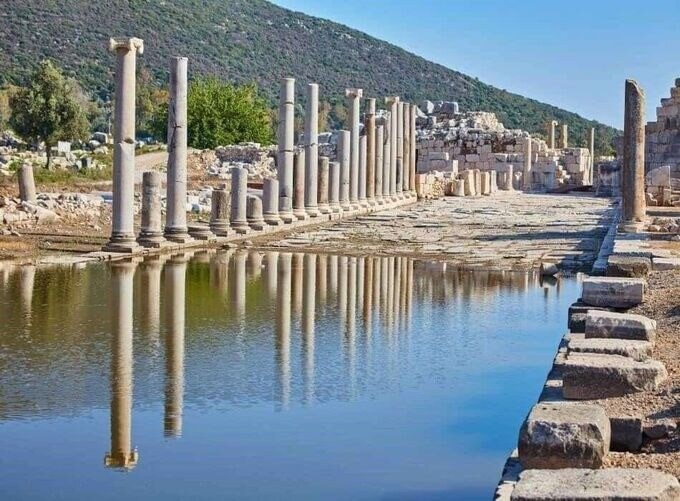
How to Do Turkey and Greece Together | Itinerary Tips
Turkey and Greece are two of the most captivating destinations in the Mediterranean, each offering a unique blend of history, culture, and natural beauty. For travelers seeking to explore both countries in one trip, combining these two diverse yet complementary destinations can create a truly enriching experience. This comprehensive travel guide will help you plan an unforgettable journey through Turkey and Greece, offering insights into itinerary planning, key destinations, travel logistics, and tips for making the most of your combined adventure.
Why Combine Turkey and Greece?
Combining Turkey and Greece allows you to experience the rich cultural and historical tapestry of the ancient world, vibrant cities, stunning landscapes, and beautiful coastlines in a single trip. Here’s why a combined journey is worthwhile:
Historical and Cultural Riches
- Shared History: Both countries share a deep historical connection, with ancient civilizations such as the Greeks and the Ottomans leaving their mark on the region. Exploring both nations provides a deeper understanding of their intertwined histories.
- Architectural Marvels: From the ancient ruins of Ephesus and Troy in Turkey to the Acropolis and Delphi in Greece, both countries offer iconic archaeological sites that reflect their rich cultural heritage.
Diverse Landscapes of Turkey and Greece
- Turkey’s Varied Terrain: Turkey boasts diverse landscapes, including the fairy chimneys of Cappadocia, the Mediterranean coast, and the dramatic mountains of Eastern Anatolia.
- Greece’s Natural Beauty: Greece offers stunning islands, turquoise seas, and picturesque villages, as well as the rugged terrain of the mainland.
Culinary Delights of Turkey and Greece
- Turkish Cuisine: Known for its rich flavors, Turkish cuisine includes kebabs, mezes, baklava, and traditional dishes like manti (Turkish dumplings).
- Greek Cuisine: Greek food is famous for its fresh ingredients and Mediterranean flavors, including gyros, souvlaki, moussaka, and baklava.
Cultural Experiences
- Festivals and Traditions: Both Turkey and Greece have vibrant festivals and traditions. Experience local festivities, music, dance, and traditional customs in both countries.
Planning Your Turkey and Greece Itinerary
A well-planned itinerary is crucial for making the most of your trip to Turkey and Greece. Here’s a suggested itinerary to help you combine the highlights of both countries efficiently:
Duration for the Tour of Turkey and Greece
A combined trip to Turkey and Greece typically requires at least two weeks to ensure a comprehensive experience. A suggested duration is 14-16 days Turkey and Greece Tour, allowing you to explore key destinations in each country.
Suggested Itinerary for Greece and Turkey
- Explore the Historic Peninsula: Visit the Hagia Sophia, Topkapi Palace, and the Blue Mosque.
- Discover the Grand Bazaar: Wander through the bustling market and experience local shopping.
- Cruise on the Bosphorus: Enjoy a scenic boat ride along the strait that separates Europe and Asia.
Day 4-5: Cappadocia, Turkey
- Hot Air Balloon Ride: Take in the breathtaking landscapes from above at sunrise.
- Explore the Cave Dwellings: Visit the Göreme Open-Air Museum and underground cities.
Day 6-7: Ephesus and Pamukkale, Turkey
- Ephesus: Wander through the ancient ruins, including the Library of Celsus and the Great Theatre.
- Pamukkale: Relax in the thermal waters and explore the ancient city of Hierapolis.
Day 8-9: Athens, Greece
- Acropolis: Visit the Parthenon, the Erechtheion, and the Temple of Hephaestus.
- Plaka Neighborhood: Stroll through the charming streets and enjoy Greek cuisine.
Day 10-11: Santorini, Greece
- Sunset in Oia: Experience the stunning sunsets from this iconic village.
- Explore the Caldera: Discover the volcanic landscapes and relax on the unique black sand beaches.
Day 12-13: Mykonos, Greece
- Beach Time: Enjoy the beautiful beaches and vibrant nightlife.
- Explore Mykonos Town: Wander through the narrow streets and discover local shops and restaurants.
Day 14: Return to Athens or Istanbul
- Travel Back: Depending on your departure city, return to Athens or Istanbul for your flight home.
Travel Logistics
Flights and Transportation
- Flights Between Countries: Direct flights between major cities like Istanbul and Athens are frequent and take about 1.5 hours. Consider booking these flights in advance for the best rates.
- Internal Flights: Within Turkey and Greece, budget airlines offer flights between major cities and islands. Book these flights early to secure the best deals.
- Ferries: Ferries connect some Greek islands with Turkey, such as the routes between Bodrum and Rhodes. Check ferry schedules and book tickets in advance.
- Local Transportation: Use public transportation, taxis, or rental cars to explore cities and regions. Consider local transportation passes or rental options for convenience.
Visa Requirements
- Turkey: Most travelers require a visa to enter Turkey. Apply for an e-visa online before your trip.
- Greece: As part of the Schengen Area, Greece requires a Schengen visa for many travelers. Ensure you apply for the appropriate visa before your trip.

Currency
- Turkey: The local currency is the Turkish Lira (TRY). Credit cards are widely accepted, but carry some cash for small purchases and markets.
- Greece: The local currency is the Euro (EUR). Credit cards are commonly used, but having cash on hand for smaller transactions and local markets is advisable.
Language
- Turkey: Turkish is the official language, but English is widely spoken in tourist areas.
- Greece: Greek is the official language, but English is commonly spoken in tourist regions.
Health and Safety
- Health Precautions: Ensure you have travel insurance and are up-to-date on routine vaccinations. Drinking bottled water and avoiding street food in unfamiliar areas can help prevent health issues.
- Safety: Both Turkey and Greece are generally safe for tourists. Use common sense, stay aware of your surroundings, and follow local advice.
Top Attractions in Turkey and Greece
Turkey
- Istanbul: Explore the Hagia Sophia, Blue Mosque, and the bustling Grand Bazaar.
- Cappadocia: Experience the fairy chimneys and hot air balloon rides.
- Ephesus: Discover the ancient ruins and the Library of Celsus.
- Pamukkale: Relax in the thermal pools and visit Hierapolis.
- Antalya: Enjoy the Mediterranean beaches and historic old town.
Greece
- Athens: Visit the Acropolis, the Parthenon, and the ancient Agora.
- Santorini: Admire the sunset views from Oia and explore the volcanic landscapes.
- Mykonos: Relax on the beaches and enjoy the vibrant nightlife.
- Delphi: Explore the ancient ruins and the Temple of Apollo.
- Crete: Discover the Minoan ruins at Knossos and enjoy the island’s beaches.
Cultural Etiquette and Tips
Cultural Differences
- Turkey: Respect local customs and dress modestly when visiting religious sites. Tipping is appreciated but not mandatory.
- Greece: Dress modestly when visiting churches and monasteries. Tipping is customary in restaurants and cafes.
Dining Etiquette
- Turkey: Meals are often social events. Share dishes and enjoy a variety of mezes. It’s polite to finish your meal, as leaving food on your plate may be seen as wasteful.
- Greece: Meals are typically leisurely affairs. Enjoy multiple courses and savor the flavors. It’s customary to leave a tip of around 5-10%.
Shopping Tips
- Turkey: Bargaining is common in markets and smaller shops. Be polite and respectful during negotiations.
- Greece: Haggling is less common in Greece, but you may find it in markets and some shops. Be prepared to pay fixed prices in most stores.
Local Customs
- Turkey: When visiting mosques, remove your shoes and dress modestly. Public displays of affection are generally reserved for private settings.
- Greece: Greeks are friendly and welcoming. A friendly greeting and respectful behavior are appreciated.
Combining Turkey and Greece: Practical Tips
Booking Accommodation
- Book in Advance: Secure accommodations in major cities and popular tourist areas well in advance, especially during peak seasons.
- Mix and Match: Consider a mix of hotels, boutique stays, and vacation rentals for a varied experience.
Creating a Flexible Itinerary
- Allow Flexibility: While planning is essential, leave room for spontaneous adventures and changes to your itinerary.
- Prioritize Interests: Focus on the attractions and activities that interest you the most in each country, and don’t be afraid to skip less appealing spots.
Staying Connected
- SIM Cards: Purchase a local SIM card for internet access and communication. Both Turkey and Greece offer prepaid SIM cards for tourists.
- Apps and Maps: Use travel apps for navigation, language translation, and local recommendations.
Health and Well-being
- Hydration: Stay hydrated, especially during hot weather. Drink plenty of water and avoid excessive sun exposure.
- Rest: Ensure you get enough rest between travel days to avoid fatigue and enjoy your trip to the fullest.
Turkey and Greece Tours: Top Travel Packages
Combining a trip to Turkey and Greece offers an unparalleled opportunity to explore two rich and diverse cultures in one journey. By carefully planning your itinerary, understanding travel logistics, and embracing the unique experiences each country offers, you can create a memorable adventure that highlights the best of both destinations. Whether you’re marveling at ancient ruins, savoring local cuisine, or relaxing on beautiful beaches, Turkey and Greece together promise a travel experience filled with discovery and delight. So pack your bags, prepare for an extraordinary journey, and get ready to explore the wonders of these two captivating Mediterranean gems.



